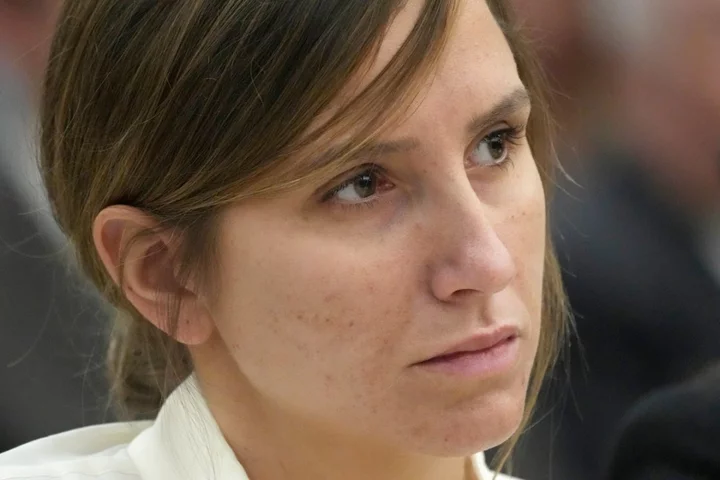
Grief author accused of killing husband with fentanyl cocktail claims damning letter is merely a book excerpt
A grief author accused of poisoning her husband with a fentanyl-laced cocktail has claimed a damning letter found in her jail cell is merely an excerpt from her new book. Kouri Richins, 33, is facing charges of aggravated murder and three counts of drug possession with intent to distribute over the March 2022 death of her husband Eric Richins. Ms Richins allegedly killed her husband of seven years and father of her children by slipping a lethal dose of fentanyl into a Moscow Mule he later drank. Before her arrest earlier this year, Ms Richins self-published a children’s book about grief based on her children’s experiences after they lost their father. Last week, the 33-year-old was charged with witness tampering after a letter was found in her cell in which she allegedly asked her brother to “falsely” testify that her husband died after ordering drugs and pills from Mexico. But now, in a phone call to her mother, Ms Richins has claimed the incriminating letter was simply part of a fictional book she is writing about her stay in a Mexican prison, according to court documents. “When I first got in here I was telling you how I was writing a book … those papers were not a letter to you guys, they were part of my freaking book … I was writing this fictional mystery book,” Ms Richins says in the call, according to a court filing. “I go to Mexico and I’m like trying to find these drugs … I’m writing about Dad … like me and Dad went to Mexico to find these drugs … you can very much tell that the whole thing is very much a story … then I get in the Mexican prison … I said have Skye sneak me in some white strips because my teeth are getting yellow because all we do is drink coffee in the Mexican prison.” In the jailhouse letter, Ms Richins told her mother to instruct her brother, Ronald Darden, to testify that her husband got fentanyl from Mexico. “Here is what I’m thinking but you have to talk to Ronney,” Ms Richins wrote in the letter. “A year prior to Eric’s death, Ronny was over watching football and Eric and Ronny were chatting about Mexico trips. Eric told Ronny he gets painkillers [and] fentanyl from Mexico.” Ms Richins went on to write that Mr Darden “would probably have to testify to this but it’s super short not a lot to it”. She also said in the letter Mr Darden could take some liberties with the narrative as long as he got the point across. Prosecutors have previously said there is no evidence suggesting Mr Richins bought the fentanyl that killed him. In a request to the court filed on Tuesday, prosecutors said Ms Richins’ motion about the letter “contains factual errors and legal misunderstandings, rendering it unpersuasive at best”. Prosecutors have claimed that Ms Richins had previously tried to poison her husband after he consulted a divorce attorney on learning that his wife was $2m in debt. Ms Richins had also reportedly taken out at least four life insurance policies on her husband before allegedly poisoning him. Ms Richins has denied all the allegations against her. If convicted, she faces between 25 years to life in prison. Read More Grief author accused of killing husband with fentanyl allegedly asked brother to lie in letter found in cell Mother accused of killing husband with fentanyl-laced cocktail ‘misses her children’ in prison, lawyer says Utah woman who allegedly sold author Kouri Richins fentanyl used to poison husband appears in court
2023-09-21 17:55
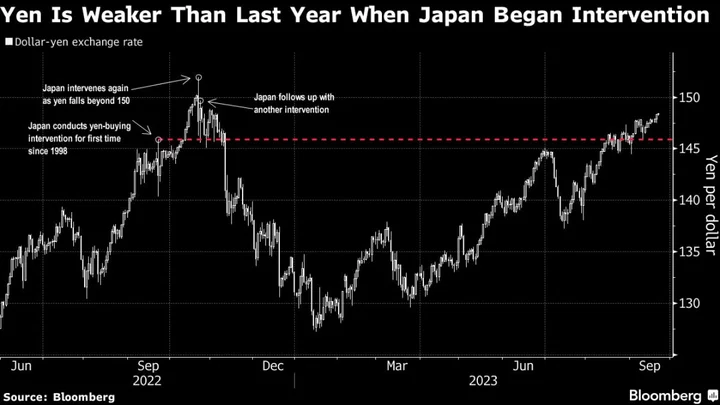
Traders on Intervention Watch as Yen Hovers Near 150 to Dollar
Traders are on guard for any sharp move in the yen as it hovers near the 150 level
2023-09-21 17:48
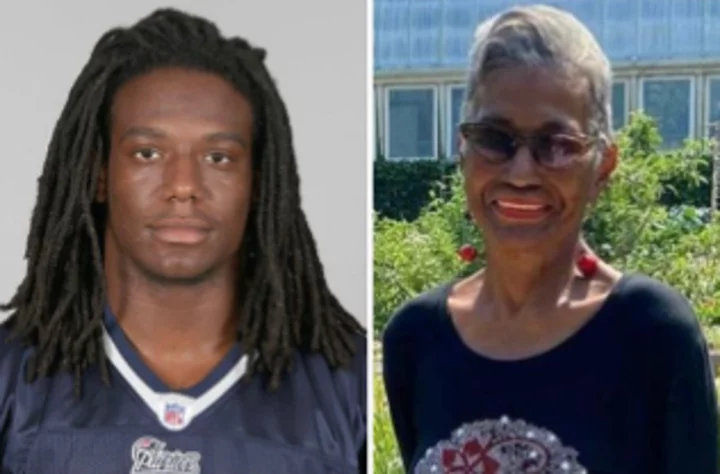
Sergio Brown missing - updates: Ex-NFL player tracked to Mexico after new Instagram video
Authorities in Illinois reportedly believe former NFL player Sergio Brown could be in Mexico, days after his mother was found dead in a creek behind her home. Mystery erupted around Mr Brown on Saturday after a concerned family member filed a missing persons report for the 35-year-old New England Patriots alum and his mother Myrtle Brown, 73. Myrtle was found dead less than 100 yards from her Maywood home the following day. Her death was ruled a homicide as the Cook County Medical Examiner’s Office found injuries resulting from an assault. The case took a bizarre turn as videos emerged from an Instagram account linked to Mr Brown. Authorities had said they were investigating the authenticity of the posts, in which a man identified as Mr Brown claimed he was kidnapped by the FBI and that his mother was on vacation. Maywood police has now determined that one of the videos was recorded in Playa del Carmen, Forbes reports. The Independent has not received confirmation from authorities that Mr Brown is in Mexico. Eagle-eyed social media users previously pointed out that a building’s logo in the background of the video appeared to spell the words “Sabbia Condos.” Read More Missing ex-NFL star posts bizarre Instagram about police and FBI after mother found dead in creek Ex-NFL star Sergio Brown and his mother went missing. Police say she was murdered and he has yet to be found Sergio Brown posts second strange video about Finding Nemo while ‘missing’ after mother’s death
2023-09-21 17:26
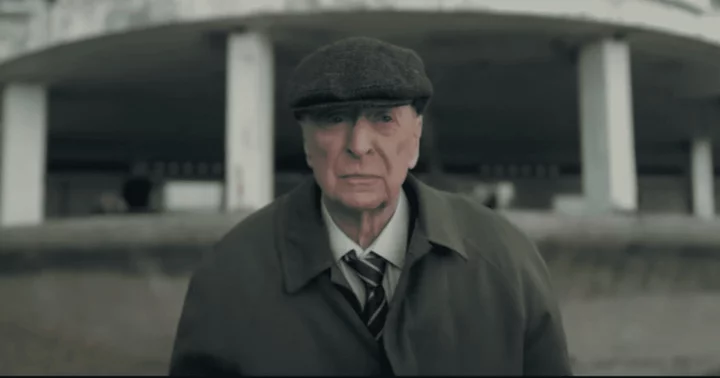
Is Michael Caine OK? 'The Dark Knight' star gets candid about being 90, says 'I sort of am retired now'
Michael Caine makes a rare red carpet appearance at the London Premiere of 'The Great Escaper'
2023-09-21 17:23
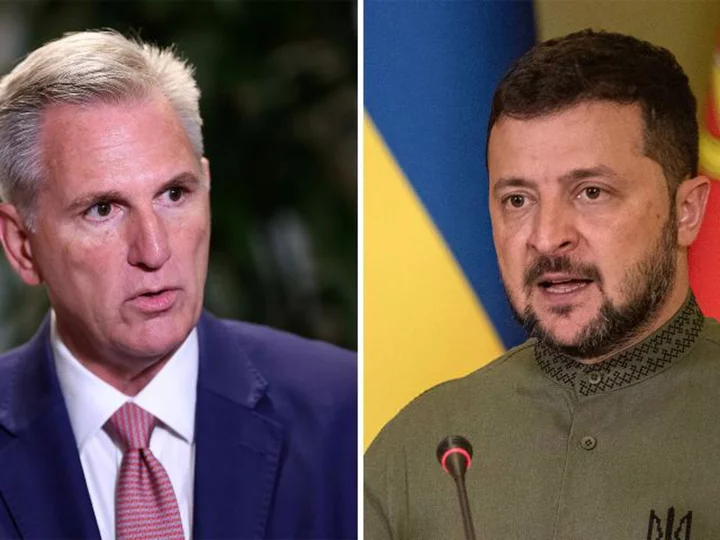
Zelensky faces a more splintered GOP as he returns to Capitol Hill looking for aid
Ukraine President Volodymyr Zelenksy will return to Capitol Hill Thursday for his second visit since his country was besieged by Russia. Only this time, the political landscape has shifted.
2023-09-21 17:15

A scientist has discovered when Earth's first continent was formed
A researcher has figured out that the Earth’s first continent was formed 3bn years ago, in a new paper that sheds fresh light on the early stages of the planet’s life. Jane Greaves, an astronomy professor in the School of Physics and Astronomy at Cardiff University in Wales, was examining continent formation on distant stars and planets. It is thought that exoplanets with continents that formed in a similar way to Earth’s are more likely to be habitable, and perhaps even contain alien life. In the process, she calculated when several distant planets’ continents were born, as well as those a little closer to home. Continents on Earth sit on top of the planet’s hot, viscous mantle. Heat from the inner core stops the mantle from solidifying. The reason the core is hot is because it contains radioactive elements that came from neutron star collisions billions of years ago such as forms of Uranium, Thorium and Potassium. By analysing how many materials like this are present on Earth and on other planets, we are also able to estimate when the continents formed. On Earth, that was about 9.5 billion years since the beginning of the universe. Meanwhile, in Greaves' sample, the first continents appeared 2bn years before Earth’s on the exoplanets of younger, so-called thin disk stars. Older, thick disk stars analysed in her work produced rocky planets with continents that appeared even earlier: about 4 to 5bn years before Earth’s. “The outlook seems very promising for finding rocky exoplanets with continents, given that nearby Sun-like stars have already produced a few candidate hosts,” she wrote. The study, “When were the First Exocontinents?” is published in Research Notes of the American Astronomical SocietySign up to our free Indy100 weekly newsletter Have your say in our news democracy. Click the upvote icon at the top of the page to help raise this article through the indy100 rankings.
2023-09-21 17:15
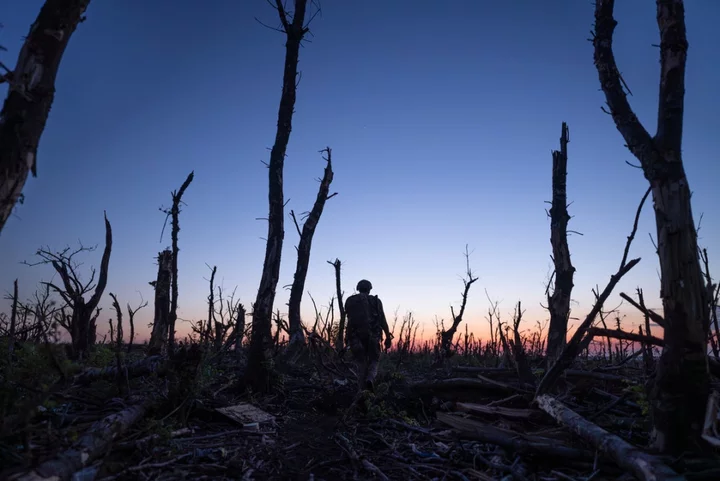
Inside Ukrainian brigade’s battle ‘through hell’ to reclaim village from Putin’s troops on way to Bakhmut
The Russian bullet struck the sergeant just above the left ear. The leader of the Ukrainian platoon was down. Headquarters radioed a battlefield promotion to the private who had called him “brother” — a man known as Courier. Courier knew the platoon's orders were to move forward through the forest, on the road to Bakhmut. He hesitated for 30 seconds near his mortally wounded commander. Maybe a minute. Then he decided: there would be no turning back as he howled “forward”. He fired toward a trench just ahead until he was sure the Russians inside would never shoot again. Then the men stumbled through the charred spindles of trees toward the village of Andriivka — the objective of the 3rd Assault Brigade since the start of Ukraine’s counteroffensive this summer, about 6 miles (10 kilometers) south of the city of Bakhmut. The sergeant, Gagarin, and other injured soldiers could only be evacuated after dark, because the Russians were also hunting downed Ukrainians. Days later, as he prepared for Gagarin's funeral, Courier predicted his own future, his pale eyes unfocused. “This forest is taking our friends away, and this is the worst,” he said. “And when I think about how far we still need to move forward ... most likely someday I will be the one to remain lying in the forest, and my friends will just go forward.” This stretch of dead forest — a couple dozen trees wide and a mile (2 kilometers) long — toward the equally dead village of Andriivka is one of countless like it on the road to Russian-controlled Bakhmut, which has now taken on huge symbolic significance in the Ukrainian counteroffensive. The Associated Press spent two weeks with the brigade for an intimate glimpse into the speed, direction and cost of the counteroffensive, through scenes witnessed in the forest and at rest, in helmet camera footage and drone video. A lot rides on their progress. Ukrainian president Volodymyr Zelensky is making his country's case to Washington on Thursday for more money and weapons, and must persuade his audience that the counteroffensive is working. The US Congress is currently weighing president Joe Biden’s request to provide as much as $24bn more in military and humanitarian aid. In an interview with “60 Minutes,” Mr Zelensky acknowledged the counteroffensive was slow, but added: “It is important that we are moving forward every day and liberating territory.” A study earlier this month by the Royal United Service Institute, a London-based think-tank, found that Ukrainian forces are averaging 700-1,200 meters of progress every five days. That gives Russian forces time to dig in and especially to mine territory as they pull back. The 3rd Assault Brigade, composed entirely of volunteers and considered one of Ukraine’s best and most experienced corps, has been fighting almost nonstop in the east since January, while less-experienced units received new training and modern weapons to fight in the south. The AP is identifying the men by their call-signs, which is both how they identify each other and a military requirement to report in-depth on the unit. Bakhmut fell to Russia in May, largely due to waves of attacks from mercenary Wagner fighters, including prison conscripts thought to have died by the hundreds. Ukraine has been trying to reclaim it ever since, hoping to deal a major psychological blow to Russia. But the soldiers sent to carry out the task are relying on largely Soviet-era armoured vehicles and older weapons. In the past month, the 3rd Assault Brigade had only been able to move a mile (2 kilometers), crossing mines and booby-trapped trenches and dodging artillery, drone-launched grenades and Russian forces within shouting distance. The questions now facing them were the same ones facing their country: Would they succeed, and at what cost? Andriivka was their goal, as important as any strip of land in Ukraine. And on 6 September, the day Courier left his commander's body behind, he and his men took over a trash-strewn trench in the middle of the forest and held it for four full days. On either side of them were mined fields that once grew wheat and now sprout only craters. During moments of rest, he leafed through a diary, written longhand by a Russian soldier: “I’ve been at war for four weeks already and I miss my mum,” Courier read. Courier asked one of the Russian prisoners who surrendered what he knew about the diary. The Russian replied: “I don’t know. I just got here today.” Maybe the author was the Russian whose body Courier propped up to protect himself from incoming fire. Or maybe he was one of the Russians who had shot Gagarin and been killed in turn a few minutes later. Courier didn't know. But by then, Gagarin was dead. And the forest kept claiming others. Shepherd, who was wounded in the leg in the morning and had to wait hours for evacuation from the battlefield, was a mask of pain. Chapa too. A grenade struck Spaniard’s helmet, and the resulting head injury would leave him helpless. Gary had no obvious injuries but was so shell-shocked he could barely make it through a conversation. Courier would go to western Ukraine and represent the platoon at Gagarin’s funeral. Gagarin, ironically named for the Russian cosmonaut who was the first human in space, was buried in his hometown of Polonne, a 550-mile (900-kilometer) drive from the battlefield. As military pallbearers walked uphill toward the churchyard, residents along the way stopped and knelt to honour the dead along flower-lined roads. One of the men carrying the casket remarked on the view from the village cemetery. “I’ve done this 56 times,” he said grimly. Social media feeds from the brigade show dozens of funeral announcements since the counteroffensive began. Gagarin’s mother sought out Courier, who was among the last to see her son alive. But he finds it hard to talk to civilians these days. “I feel like there is a gap between civilians and us now," he said. “When the war is over, I will probably just leave to fight elsewhere.” For Courier, war is complicated. He says he enjoys the dopamine rush, when he leaves the “horrible grinder," comes back to headquarters and jumps down from the armored vehicle. “You look at the sky and you look around, and you understand that you’re alive and nothing can kill you,” he said. "This is the moment. This is a feeling you cannot get anywhere else in life.” And yet he did not want to return to the strip of forest leading to Andriivka. His commanders ordered him to take 10 days’ leave, a break for a fighter whose anguish they sensed despite his outward calm. He would take the time to go fishing and clear his head. “Unfortunately, I’m only able to leave after going through hell,” he said bitterly. On the day of the funeral, 13 September, any man whole enough to fight was in the forest, including another sergeant in the platoon, Fedya. On 5 September, Fedya had been lightly wounded by a cluster munition, and the injury may have saved his life. Gagarin took his place in the assault, and that was the day he died. The last push started on 14 September. Men from other depleted units from the 3rd Assault Brigade joined in for the usual three- to four-day stint on the battlefield. After two months of inching their way forward through the stand of ash trees, maybe they would finally break through the woods to Andriivka. “How many more lives do we need to give?" Fedya asked. "How many more forests are there?” Fedya sees war as something to be perfected through a combination of study and experience. A 24-year-old with a smooth and unlined face, he wears his authority lightly, introspective but with little time or energy to spare on self-doubt or guilt. He dreams of war, and when he wakes, it is there waiting for him to move forward. “War is a science, and you have to get better at it and study. If you don’t, you have no chance of survival,” said Fedya. “The smarter you are, the more qualified you are, the better your chances of coming back alive.” On 14 September, they finally did it — more than three months after receiving the order to reclaim Andriivka. They broke through the shelling and the drone-launched grenades, firing at Russian forces who fled in front of them. The day was a blur. The Ukrainians pummeled the tiny village with artillery and then threw a smokescreen into its main street. Russian artillery hit retreating and surrendering Russian soldiers, whose bodies lay face down or curled on their sides. The last hundred meters was a mix of blood, metal, trash, spent cartridges and shredded armour. The Ukrainians went house to house, taking Russian prisoners and killing those who fought back. Even after the last of the Russian forces were expelled, Andriivka came under constant shelling, with buzzing drones on both sides. Fedya warned his men to shoot down the ones that hovered: They were the ones that dropped grenades. That night, Fedya dreamed he was cowering behind a shrapnel-pierced truck on the battlefield and was hit by artillery fire. The next morning, Fedya carried a Ukrainian flag to hoist in the reclaimed village of Andriivka. It was time to retrieve the bodies. There was the body of 19-year-old Riley, killed on the first day he ever fought. There was Zima. There were others, placed carefully into bags and carried back through the forest. The men left dozens of Russian bodies for later. Andriivka was now nothing but a pile of bricks and scorched trees with the smell of death. But it was in Ukrainian hands, and Fedya was ready to hand control to the next brigade to reclaim the next forest. He huddled in one of the few basements left and tried to explain to the incoming commander why the fight for this broken town was worth it. “Look at these fields, this forest. Everything grows again," he said. "The cities that we reclaim, they will be rebuilt. ... We will clear out all that’s left of the Soviet Union. ... The war could be the best thing to happen, in the sense that everything can start fresh.” Ukrainian officials said this month’s battle’s for the road to Bakhmut may have taken as many as three Russian brigades out of combat, as cited in an assessment Tuesday by the Institute for the Study of War. But Fedya was ready to leave. “I’m tired of this forest. I want to go home. I want to wash and sleep,” he said with a curse. “Until morning. And in the morning, I’ll come back.” Hinnant reported from Paris. Alex Babenko contributed to this story. Read More Ukraine war’s heaviest fight rages in east - follow live Charity boss speaks out over ‘traumatic’ encounter with royal aide 3 South Africa navy personnel die after they are swept off a submarine deck during supply operation Kenya's president is committing his country to lead a multinational force to Haiti to combat gangs Singapore police uncover more gold bars, watches and other assets from money laundering scheme
2023-09-21 16:59

U.S. FDA found lapses at Novo's main U.S. factory in May 2022 -report
By Maggie Fick LONDON (Reuters) -U.S. drug regulators issued a report detailing quality control lapses at Novo Nordisk's main factory
2023-09-21 16:51
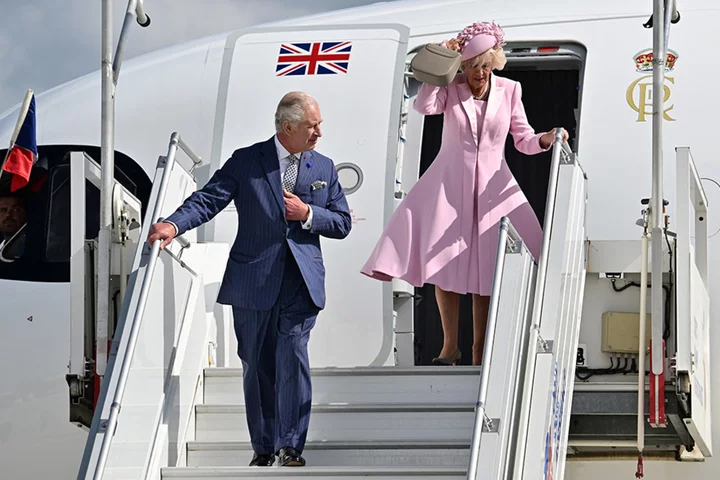
In pictures: King Charles and Queen Camilla on state visit to France
The couple are on a three-day visit to France, with a state dinner among the highlights of the first day.
2023-09-21 16:26

Taylor Swift: Australia to host academic conference on pop icon
The event will explore the megastar's impact on culture and the music industry.
2023-09-21 15:55
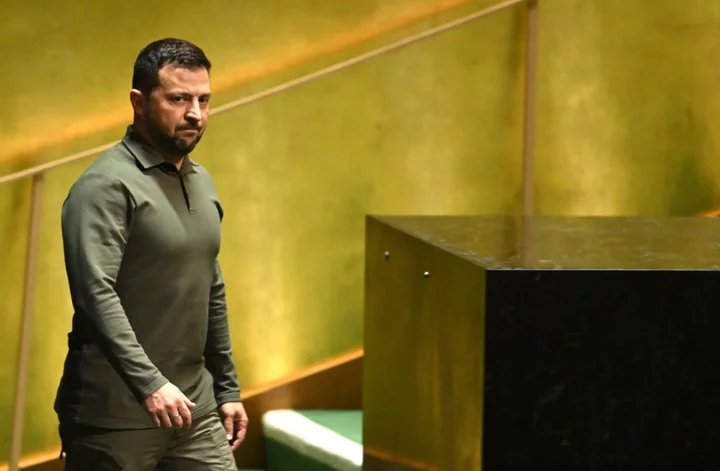
Russian official tries to disrupt Zelensky’s speech at UN and gets told to ‘stop the war’
The Russian envoy attending the United Nations Security Council meeting on president Vladimir Putin’s behalf was told to “stop the war” after he objected to Ukrainian president Volodymyr Zelensky’s speech on Wednesday. Russia’s ambassador to the UN Vassily Nebenzia protested the council president’s decision to allow Mr Zelensky to speak before the 15 council members. “We would like to ask you on what basis you are proposing to allow president Zelensky to speak before the members of the council, many of whom are represented by the heads of states and governments,” the Russian envoy said, accusing the Albanian state of demonstrating “open disregard for the procedures and practices of the UN security council”. Albanian prime minister Edi Rama shot back at the Russian leader: “I must say that coming from you all this lecture of violating the rules in this building is quite an impressive shot.” “You stop the war and president Zelensky will not take the floor,” he said, after noting the objection flagged by the Russian leader over the Ukrainian leader speaking before the council members had addressed the meeting. Mr Rama also cited the council rule allowing a non-member to speak first and added that “this is not a special operation by the Albanian presidency”, eliciting laughter with a quip about Russia’s insistence on referring to its offensive against Ukraine as a “special military operation”. Another heated exchange erupted at the table after Mr Nebenzia referred to Mr Rama as Albania’s prime minister and a Nato member instead of as the council president but Mr Rama declared: “I take note, and we’ll continue with our session.” Shortly after, Mr Zelensky took to X and thanked the Albanian leader for “correctly handling Russia” as he shared a video clip of the heated exchange. “Dear @EdiRamaal, today at the UNSC you showed the world how to correctly handle Russia, its lies, and its hypocrisy. I thank you for steering the presidency in such a principled manner,” he said on Twitter. The second day of the UN meeting in New York was flooded with speculations on the Ukrainian president and Russia’s top diplomat Sergei Lavrov clashing for the first time in person since the invasion in Ukraine started in February last year. The two were either expected to clash, speak or totally avoid each other. In the end, Mr Zelensky and Sergei Lavrov avoided staring each other down across the UN Security Council’s famous horseshoe-shaped table as the former left before Mr Lavrov arrived. Mr Zelensky denounced Russia as “a terrorist state” while Russian ambassador Vassily Nebenzia sat facing him near the other end of the table’s arc. As the Ukrainian president launched into his remarks, the Russian briefly looked at his phone, then tucked the device away. Mr Zelensky left before Mr Lavrov’s arrival, which happened as US secretary of state Antony Blinken was accusing Russia of having “shredded” key provisions of the UN Charter. Mr Lavrov blamed the West for “a shaking of global stability as well as the exacerbation and the fomenting of new hotbeds of tension”. He said “the US and its satellites have egregiously and openly interfered in the domestic affairs of Ukraine,” heightening the risks of global conflict. He insisted that Russia has “fully” respected the provisions of the UN charter “in an interconnected way”. Read More Ukraine-Russia war – live: Zelensky says UN ‘incapable’ of stopping Putin’s ‘criminal aggression’ Ukraine kills 130 Russian soldiers in single day in southern push Ukraine rejects defective Leopard 1 tanks from Germany after finding ‘serious faults’ Inside a Ukrainian brigade’s battle ‘through hell’ to reclaim a village on the way to Bakhmut Russian strikes cities from east to west Ukraine, starting fires and wounding at least 14
2023-09-21 15:50

Stock market today: Asian shares track Wall Street's slump after Fed says rates may stay high in '24
Asian shares are lower, tracking a slump on Wall Street after the Federal Reserve said it may not cut interest rates next year by as much as it earlier thought
2023-09-21 14:54
